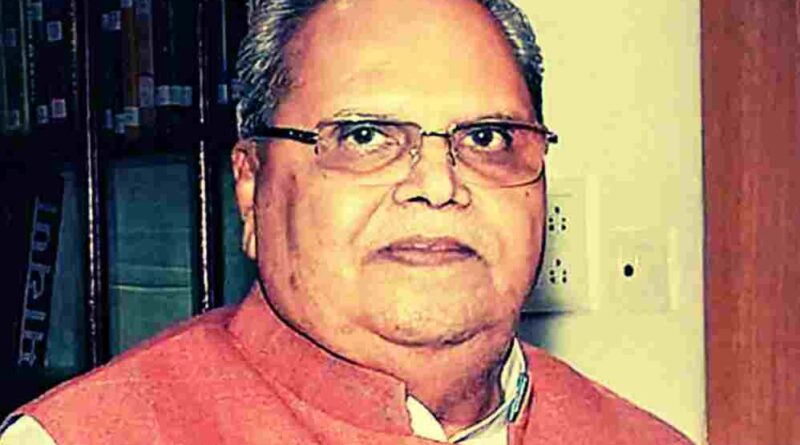Satya Pal Malik Passes Away at 77: A Look at His Legacy Beyond Politics
Satya Pal Malik, a veteran politician who served as the Governor of multiple Indian states including Jammu and Kashmir during one of its most turbulent phases, passed away today at the age of 77. His death marks the end of an era of outspoken leadership, political defiance, and unwavering commitment to public discourse.
Malik, who had recently been keeping a low profile due to health concerns, died at a private hospital in Delhi, according to family sources. Tributes have poured in from across the political spectrum, with leaders from both the ruling and opposition parties acknowledging his fearless voice and complex legacy.
A Political Journey That Refused to Toe the Line
Born in 1947 in Meerut district of Uttar Pradesh, Satya Pal Malik began his political career as a student leader and eventually rose through the ranks of several parties, including the Bharatiya Janata Party (BJP), Janata Dal, and Lok Dal. A man who often chose ideology over loyalty, Malik was known for shifting affiliations — not out of convenience, but to align with what he saw as the greater public good.
His most defining role came in 2018, when he was appointed the Governor of Jammu and Kashmir. It was under his watch that Article 370 was abrogated — a move that changed the constitutional status of the region. Though a representative of the central government, Malik did not shy away from voicing his concerns about political decisions, especially those affecting public welfare and security.
He later served as Governor of Goa and then Meghalaya, but it was his stint in Kashmir that forever tied his name to a pivotal moment in Indian history.
Not Just a Politician, But a Public Intellectual
Beyond his political designations, Satya Pal Malik carved a space for himself as a public intellectual. He was never afraid to question the establishment, even if it meant drawing criticism from his own party. His candid interviews and speeches in the past few years, especially his comments on the Pulwama terror attack and farmers’ protests, showcased a man who placed truth above party lines.
His opinions weren’t always popular, but they were respected. To many, Malik symbolized the rare breed of leaders who could critique from within — offering insight without inciting division.
A Modest Lifestyle, Despite High Office
In an era where public officials are often scrutinized for their opulent lifestyles, Satya Pal Malik stood out for his modesty. While estimates of his net worth suggest he had assets worth around ₹4 crore — modest by the standards of Indian political elites — he led a life far removed from extravagance. His financial declarations over the years showed transparency and simplicity, often emphasizing immovable properties and fixed deposits rather than luxury assets.
Those close to him recall how he would prefer quiet evenings, homemade food, and engaging in literature or discussions on history and policy. Despite holding high offices, he often appeared as “one of the people” — approachable, relatable, and honest.
Reactions and Tributes
Prime Minister Narendra Modi expressed his condolences, calling Malik “a committed public servant who worked tirelessly for the nation.” Opposition leader Rahul Gandhi also remembered him as “a man who spoke truth to power,” acknowledging Malik’s sharp critiques of government handling on several issues.
Social media has been flooded with messages from journalists, activists, bureaucrats, and everyday citizens who admired his clarity of thought and moral compass. Many noted that even when Malik was at odds with the establishment, he never crossed the line into personal attacks — keeping his focus on policies, not personalities.
A Lasting Footprint
Satya Pal Malik’s passing comes at a time when Indian politics is more polarized than ever. His life reminds us that political engagement need not be synonymous with blind loyalty. He leaves behind not just a legacy of administrative roles but a roadmap of conscience-driven leadership.
As the nation mourns the loss of a former governor, political stalwart, and truth-teller, there is also a growing call to honor his contributions — perhaps not just with formal tributes, but by ensuring that courage and integrity remain part of India’s political DNA.
May he rest in peace — his voice may have been silenced, but the echoes of his convictions will endure.
Disclaimer
The information and content shared on digitalgithub.com — including articles, blogs, news, guides, and other resources — is intended for general informational and educational purposes only. We do not guarantee the completeness, reliability, or suitability of any information. Always seek the guidance of a qualified professional before making decisions based on the information you read. Use this site at your own risk.

